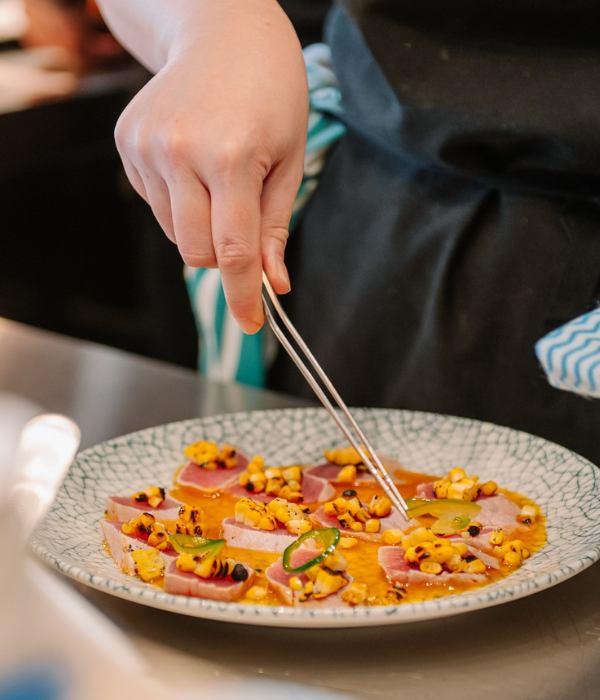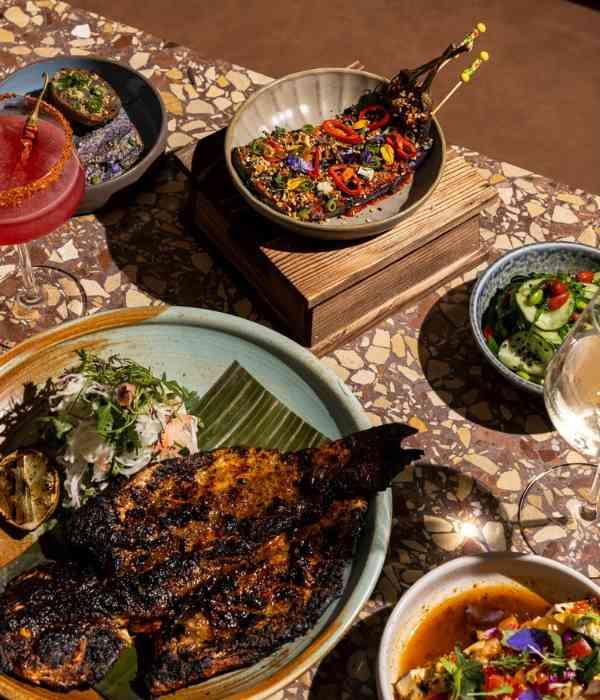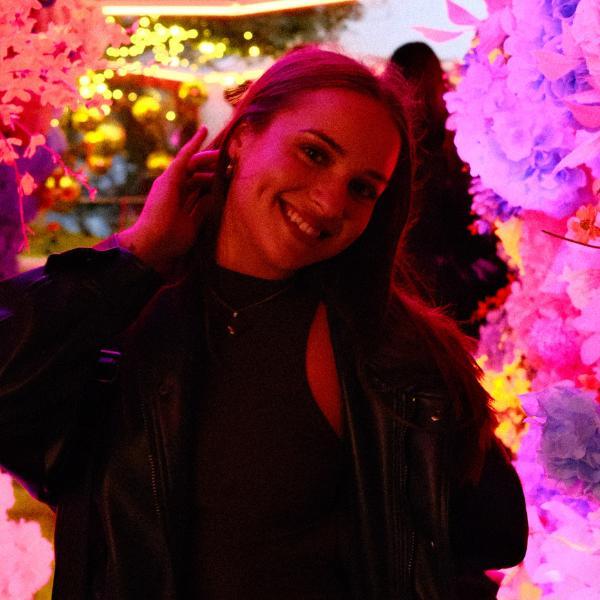When prolific Adelaide chef and restaurateur Krish Dutt was on reconnaissance in Washington D.C. for the Royal family of Jordan, he discovered a cuisine, Nikkei, that was catching fire and which combined three of his culinary passions: chilli, seafood, and Asian flavours.
Just in time for summer, Krish has brought this refreshing fusion of Japanese and Peruvian dishes to West Lakes at TUNKI: a fine dining, lake overlooking, fire popping restaurant and ceviche bar that is made for first dates, Christmas parties and New Years’ celebrations.
When you enter the ground floor of the Lakes Hotel in the early evening and climb a few steps to enter TUNKI by Krish, you are struck by two intoxicating but contrasting sights: the panoramic serenity of the lapping lake as the sun sets, and the bustle of Krish Dutt’s open kitchen, which the renowned chef has divided into three sections. At the front bar, a ceviche and sashimi chef surgically filets, slices and marinates fresh whole fish; behind him, heat radiates from the robata grill which is ablaze, perhaps with cherry wood, maybe apple, depending on the meat being cooked; at the back, a column of staff shout “yes chef” as they prepare towers of pastries and other delicacies, like lobster tacos.
While, according to Krish, the robata is the “heart and soul of the kitchen”, the chef beams joy when he shows off his assortment of exotic dried chillies in jars which line the kitchen’s shelves. Peppers of every colour are prominent ingredients on the TUNKI menu, but Krish has mastered the art of extracting all the flavour from the ingredient, while never setting off the fire alarm. Nikkei cuisine, meanwhile, similarly requires delicate balancing of flavours, as the robustness of Latin America spice meets the subtlety and cleanness of Japanese cooking.

“The Japanese eat more clean flavours whereas the Peruvians, they like to mess it up with more flavours: more garlic, more chilli, more coriander, herbs and spices,” Krish explains. “So it’s completely different flavours but when they are merged together, the techniques of using Japanese cooking over the fire, over the coals, and then doing it with Peruvian flavours, we’re the first in Adelaide to do it.”
Nikkei was born when, following the industrial revolution, the Japanese immigrated to Peru to work the plantations. Many stayed and opened restaurants, where they initially utilised traditional Peruvian bounties from the sea, adding Japanese techniques to Latin American dishes; eventually, the adopted homeland’s influences filtered through to Japanese dishes. One of the key differences between the two culinary traditions, Krish says, is differing perceptions regarding which parts of a fish or animal are useful.
“Peruvians, all the flavours they use are mostly from marinades and dressings so they can take a very inexpensive cut of meat and make it into something very, very beautiful. All the off-cut fish; they don’t throw it out. In the Western world, if we filet a fish, you throw away the bones, you throw away the meat that’s hanging around the fish, for example.

“The Peruvians, they scrape all the flesh out of the bones even, and you can turn it into a ceviche where it’s marinated with lime or lemon; add a bit of chilli paste to it and flavour it up, add some coconut to it and it becomes a completely different entrée dish.”
When serving at TUNKI’s chef’s tables, Krish has received repeated praise that the dining experience is the best they’ve ever tasted. While each dish – which look like artworks, and are served upon mounds of crushed ice – is paired thoughtfully, the melt-in-the mouth flavour bomb of fermented chilli and chipotle lamb cutlets is an early favourite.
With TUNKI, Krish has created a dining experience which befits the West Lake views; the placid waters take on new hues once your belly is full and your taste buds are alive. The Nikkei index in Adelaide is certainly on the rise.








